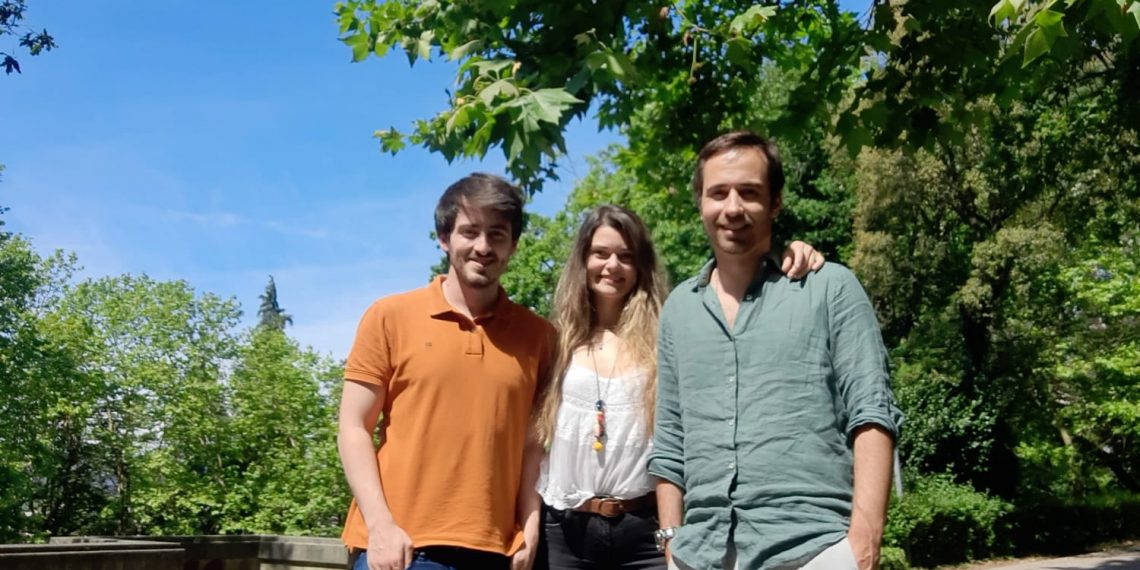The annual award of prestigious journal Nature, granted to science-based spinoffs – whose research is original and innovative, with proven commercial potential – has selected 11 companies worldwide. Born at the Institute for Systems and Computer Engineering, Technology and Science (INESC TEC), there is a Portuguese entity on the list: Seedsight. The Portuguese company has made it possible, for the first time, to analyse seeds and grains in less than a minute, thus maximising food availability.
Seedsight, an INESC TEC spin-off incubated at UPTEC, created the basic conditions for the birth of the company, in a strategy based on support for deep tech entrepreneurship. This spin-off recently completed one of the world’s most prestigious accelerator programmes, according to Forbes magazine – Techstarts – and has won several awards worldwide.
“Spin-offs are a driving force for the wealth of the region and the country. They pursue global societal challenges and are working to leverage the talent and knowledge generated in organisations like INESC TEC. The peripheral condition of Portugal, and the lack of industrial fabric ready for the adoption of cutting-edge technologies, makes it very clear that the spin-off path (although risky and time-consuming) is the right way to help prepare the future and value the knowledge generated”, explained Daniel Vasconcelos, head of INESC TEC Technology Licensing Office.
The role of Seedsight
The survival of food systems, namely the quality, availability and accessibility of essential foods like cereals and seeds, is one of the greatest challenges of our time. The time and significant costs associated with grain quality assessment processes mean that large quantities of resources are discarded due to degradation or poor quality. But Portugal is at the forefront of solving this problem, with a platform that directly catalogues seeds and grains, while being able to validate their quality, and predict their productivity (e.g., potential tons of flour produced) through low-cost biomolecular and biophysical analyses – in less than a minute.
Seedsight’s goal, with the development of this technology, is to provide the agro-food chain with the necessary knowledge to improve the decision-making process in the acquisition of raw materials for food products. This will make it possible to tackle food waste and fraud, while ensuring sustainability along the value chain.
“Currently, there has been an 18%-20% increase in costs associated with raw materials like wheat, corn, rice, oats, and quinoa, due to productivity losses at early stages in the value chain, caused by the inefficiency of grain selection processes – which are time-consuming and expensive”, explained Joana Paiva, CEO of Seedsight and researcher at INESC TEC.
In addition, there’s also the contamination of cereals, and other goods, by mycotoxins, pesticides, heavy metals, allergens, micro and nanoplastics, bacteria, viruses, and other pathogens; another issue is the fact that certain grains selected/purchased by processing industries show little value (lower quality) and need to be mixed with more expensive raw materials during late stages of their conversion into food products.
“Through blockchain technologies, deep learning, Artificial Intelligence and optical sensors, our technological platform optimises the identification of the best seeds, species, origins and suppliers of cereals, at the most competitive prices; it also provides us other indicators related to key values in our food chain, such as traceability and safety”, explained Joana Paiva.
With the Seedsight platform, agriculture players – traders, brokers, smallholder aggregators, millers, farmers, etc. – can make smarter choices in the definition and control of grains adapted to their context, through practices that contribute to increasing sustainability.
Through a sorting process applied to complete batches of grains, the platform optimises the efficiency of quality verification, significantly reducing acquisition costs and increasing productivity.
“According to the market study carried out, models point to our platform achieving an 8% reduction in costs related to sorting the best cereal, up to 89% in reducing the acquisition time of the best grains and 20% increase in productivity in the transformation of cereal into final products, increasing traceability and transparency, effectively addressing the challenges of the industry”, mentioned Joana Paiva.
The acknowledgements
Among the various acknowledgements, it’s worth emphasising that Seedsight has already been named one of the 100 current European start-ups, by Techstars Deep Tech Berlin; the company received the “2023 Women in AG Award” at the largest European agro-food technology fair – AGRITECHNICA -, which took place in Germany, and was in the top 17 finalists of the ParticleX Urbantech Global Challenge 2024, an initiative focused on the Asian market. Seedsight is currently conducting some pilot studies with partners in Africa for the detection of mycotoxins under the Validate.Global programme, promoted by Impact Hubs Vienna, Kigali and Accra. The spin-off is also part of the European project EPICENTRE, reaching the final of the last cohort of the Global Entrepeurnership Center in Dusseldorf, Germany.
“The photonics technology developed by Seedsight aims to increase the quality of seeds and grains, achieving an improvement of up to 10 times. In addition to being an important step for commodity trading, this process is vital for global food security, translating into a decisive value proposition for customers and investors”, said Martin Schilling, CEO of Techstars Berlin and Member of the Board of the German Start-up Association.


 News, current topics, curiosities and so much more about INESC TEC and its community!
News, current topics, curiosities and so much more about INESC TEC and its community!